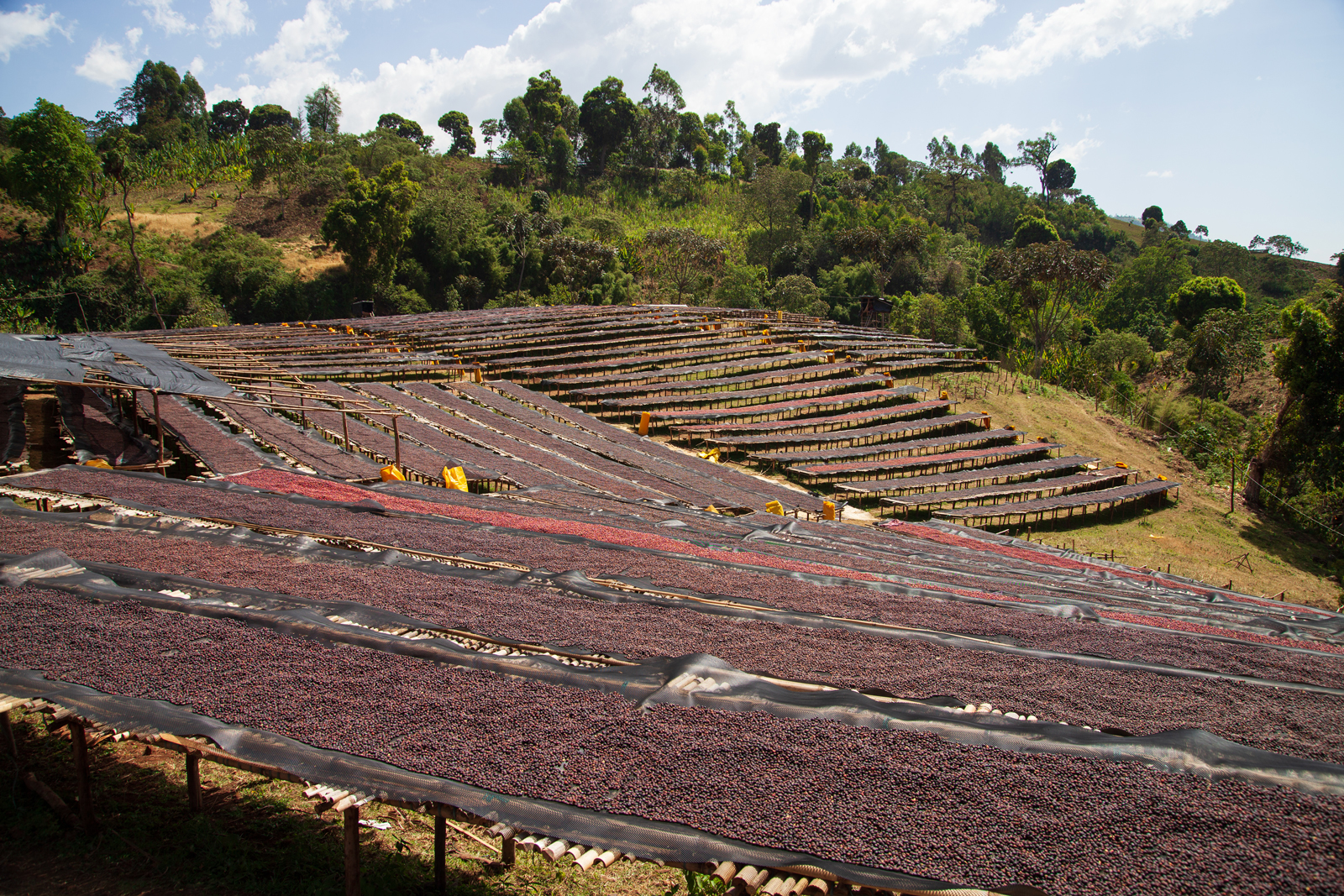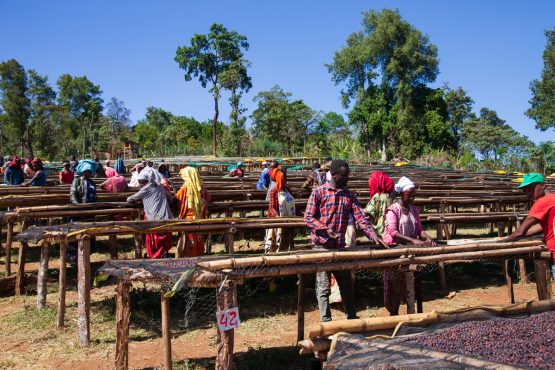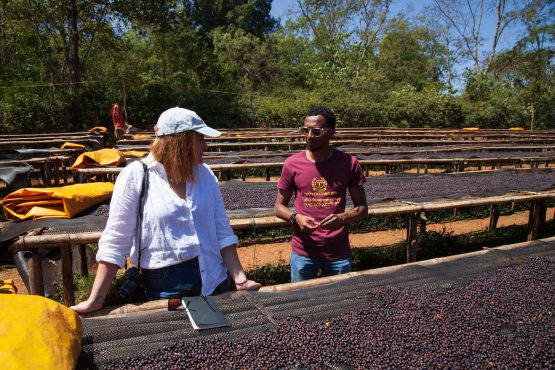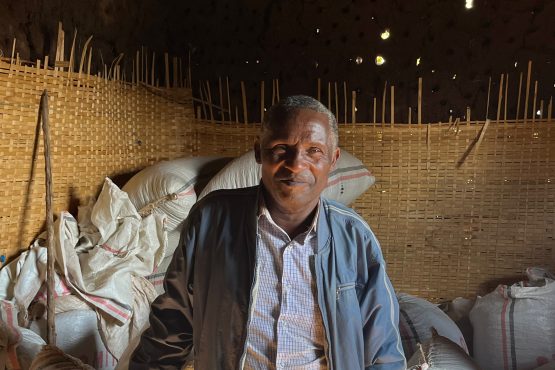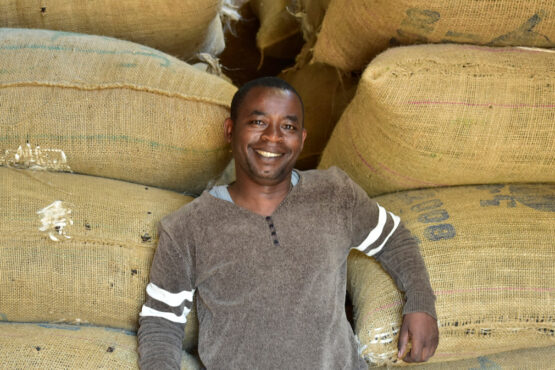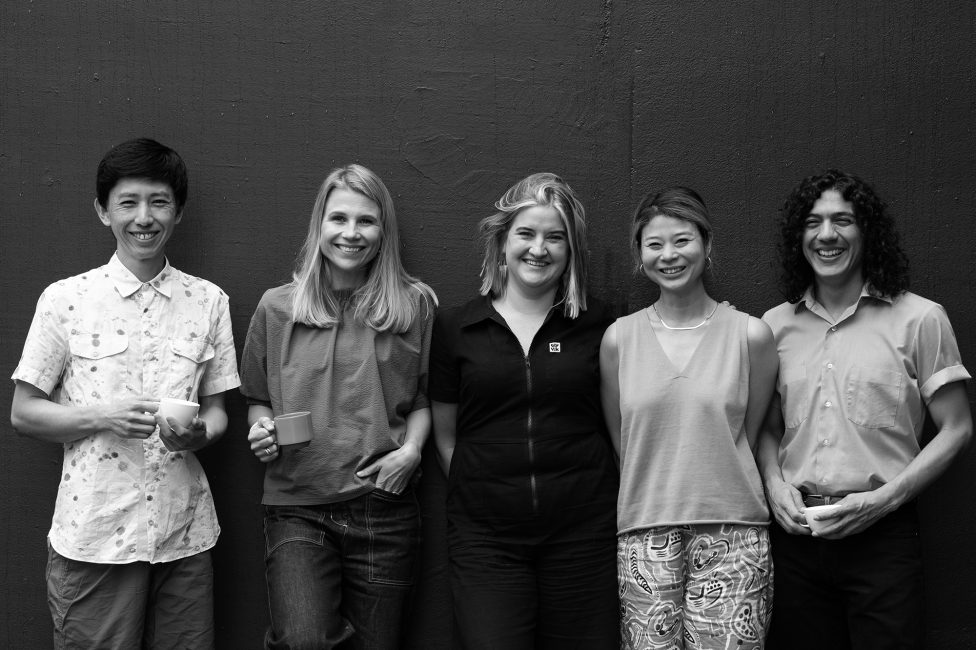Updates From The Road: Ethiopia 2023
Published 28 Mar 2023
After a successful and inspiring trip to Ethiopia earlier this year, we’re excited to share what we learned on the road and give some more information and context for what to expect from this year’s season!
We have worked closely with our service provider Sucafina Ethiopia since 2017. Their familiarity with the local supply chain and on-the-ground support has been invaluable in navigating Ethiopia’s complex coffee market, where hundreds of exporters (or shippers, as they are known locally) and countless brokers buy and sell coffee farmed by more than 15 million small holder producers!
Sucafina supports our buying in Ethiopia by connecting us to more specialty-focused shippers whose values align with ours, and providing important advice and context, logistical expertise and additional quality assurance for our coffees. With this being our first trip to Ethiopia since 2018, we were keen to strengthen our relationship with our hosts at Sucafina, learn more about the intricacies of the market in the current global climate and, more specifically, how this year’s harvest is faring for the exporters we work with.
Early on in our trip, we learned just how much uncertainty was surrounding the 22/23 season. While volumes are healthy and quality is excellent, the success of the season is contingent on pricing. At the beginning of the harvest, the base price for cherry (or farmgate price) was set at an extremely high rate by local governments – almost double the 21/22 season rate. While this is good for producers in the short term, it can create challenges in the long run.
Brokers and private washing stations struggled to access financing to pay such high prices for cherries, resulting in more cherry being processed at farm level or by middlemen, with less quality oversight than at a centralised washing station. While high quality lots were still produced, fewer are available and they demand much higher premiums than in previous years. With prices high across the board, many international or commercial buyers may source equivalent lots from neighbouring countries, resulting in an excess of stock being left in Ethiopia – on top of the coffee that is still being sold from the 21/22 season.
Knowing these factors will bring complications down the road (both in terms of quality and logistically), we have made the decision to streamline our purchasing this year and only buy from our trusted, long-term shipping partners at Testi Specialty Coffee and from the independent producers who export their coffee directly via Sucafina’s Lalisaa Project.
We were particularly excited to spend time with Testi’s team during the trip, having sourced coffee from four of their washing stations – Hadeso, Aroresa (Ayla), Werka and Jigesa – for the last five years running. The family-owned company is a rarity in Ethiopia, as they focus solely on specialty grade production across all 20 of their washing sites. We were delighted to meet the founder Faysel Yonis in their Addis Ababa offices, and be joined by his nephew, Yisak, while travelling upcountry. With him and Emanual Woldemariam (from Sucafina) we toured eight of Testi’s washing stations, learning more about their processing techniques and practices at the washing stations.
Testi’s focus on quality is self-evident and each of their sites we visited was beautiful and meticulously operated. In recent years, they have also been experimenting with more innovative processing techniques (like anaerobic fermentation, honey processing, etc.) and with more precise lot separation, allowing them to offer more distinct, region-specific profiles. Outside of their coffee production, we learnt more about their social initiatives and programs, which includes building schools to service the local communities surrounding their washing stations. As Faysel puts it: “If you have a good heart, you have to do something to help the people.”
After spending time together, we feel more aligned with Testi than ever, and are excited to develop and showcase this relationship further by featuring more of their lots in our incoming line up.
During the trip, we also had the opportunity to visit several of the Lalisaa Project members – an incredibly valuable experience. By exporting their coffee directly, these small-scale producers can access a more premium market and increase their profits considerably. Through Lalisaa, Sucafina Ethiopia assist the producers in obtaining their export licences and managing the complex logistics around the milling, transport and sale of their lots. The program is designed to strengthen the supply chain by securing farmers greater autonomy in how they farm and market their coffees and it’s one we’re excited to support for another year.
While prices will be higher this year, we’ve strategised that sourcing only via Testi and the Lalisaa Project gives us the best guarantee of high quality and longevity, coupled with excellent traceability and more streamlined logistics for all parties. Since higher prices are inevitable, we have chosen to prioritise quality and relationship!
At the cupping table, we selected lots from both shippers that showcase the exquisite nature of Ethiopian coffees. Expect bright and floral washed lots, and clean and winey naturals, with an abundance of fruit in the cup. We’re currently in the final stages of confirming our order and expect to have pre-shipment samples in May. The coffees will be landing across July/August—we can’t wait to share them with you!
Read more about our Ethiopian sourcing here or get in touch anytime to plan your next Ethiopian offerings.
